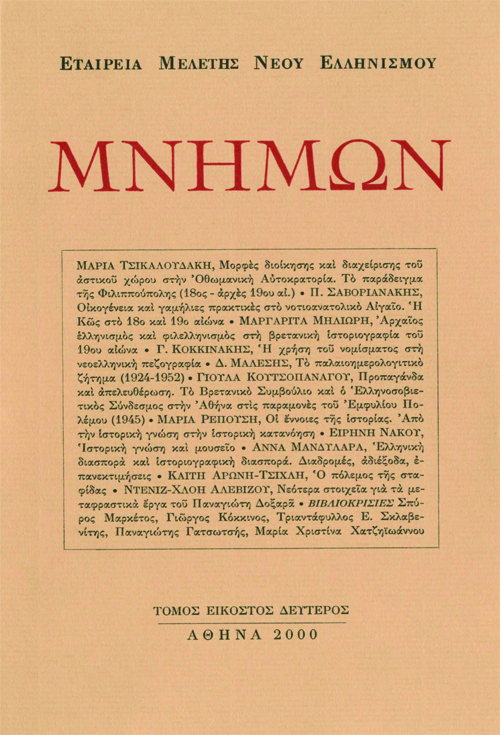ΙΣΤΟΡΙΚΗ ΓΝΩΣΗ ΚΑΙ ΜΟΥΣΕΙΟ
Abstract
The article examines contemporary museums as a special educational environment for the development of subjects' (especially children's) historical knowledge, on the basis of the analysis of a) different museums and different approaches to history education, in terms of their epistemological background, and b) relevant research results. It is supported that the use of museum objects and collections as historical sources and their interpretation as historical evidence can introduce subjects to History as an «episteme», enable them to realise historical uncertainty, historical relativity and historical questioning, recall and develop historical knowledge in close relation to historical thinking and skills. Carefully organised educational programmes that aim to develop subjects' historical knowledge within a museum environment may also have great political significance, if they enable subjects to realise their right and abilities in «breaking», investigating, «reading» and interpreting historical, cultural and social codes, and to articulate and communicate their own speech.
Article Details
- How to Cite
-
ΝΑΚΟΥ Ε. (2000). ΙΣΤΟΡΙΚΗ ΓΝΩΣΗ ΚΑΙ ΜΟΥΣΕΙΟ. Mnimon, 22, 221–237. https://doi.org/10.12681/mnimon.590
- Issue
- Vol. 22 (2000)
- Section
- APPROACHES



